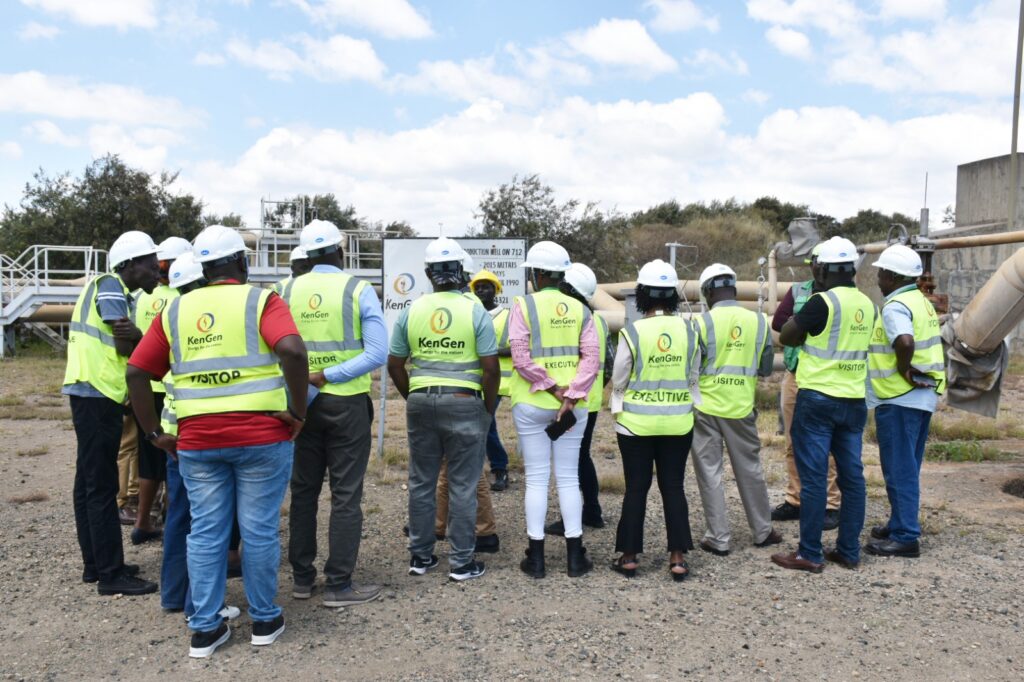
CONCEPT NOTE
INTERNATIONAL TRAINING ON INTRODUCTION TO THE OIL AND GAS SECTOR (POLICIES AND OPERATIONS
COURSE BACKGROUND
The oil and gas sector remains one of the most critical industries in the global economy, driving energy supply, industrial growth, and infrastructure development. Despite its long-standing dominance, the industry is undergoing significant changes due to policy shifts, market volatility, technological advancements, and the global push for sustainable energy solutions. Understanding the complexities of oil and gas operations, regulations, and economic factors is essential for professionals engaging with the sector in any capacity.
This course, offered by the Environmental Capacities and Sustainability (ECAS) Institute, provides a comprehensive introduction to the oil and gas industry, covering its value chain, governance structures, and emerging challenges. Participants will explore key topics such as upstream exploration and production, midstream transportation and storage, and downstream refining and distribution. Additionally, the course examines regulatory frameworks, geopolitical influences, and market trends that impact the industry at both national and international levels.
With increasing emphasis on environmental responsibility and energy transition, the course also addresses health, safety, and environmental (HSE) standards, as well as strategies for integrating sustainability into oil and gas operations. Participants will gain insights into the latest technologies, energy diversification trends, and the growing role of renewables in shaping the future of the industry. This course is designed to equip professionals with the knowledge and skills needed to navigate the evolving oil and gas sector while balancing economic, environmental, and regulatory considerations.
COURSE OBJECTIVES OF THE TRAINING
By the end of this course, participants will be able to:
- Understand the fundamentals of the oil and gas industry, including key operations and market dynamics.
- Analyze national and international policies and regulations governing the sector.
- Assess the economic and geopolitical factors influencing global oil and gas markets.
- Gain insights into upstream, midstream, and downstream operations.
- Examine health, safety, and environmental (HSE) standards in oil and gas operations.
- Explore the impact of energy transition and sustainability initiatives on the industry.
- Identify emerging technologies and innovations shaping the future of oil and gas.
WHAT YOU WILL LEARN
Upon completion of this comprehensive course participants will be able to have a clear understanding of:
- Overview of the Oil and Gas Industry – History, market trends, and key players.
- Exploration and Production – Upstream, midstream, and downstream processes.
- Regulatory and Policy Frameworks – National and international energy laws.
- Economic and Geopolitical Influences – Oil pricing, global trade, and energy security.
- Health, Safety, and Environmental (HSE) Management – Risk mitigation and sustainability.
- Energy Transition and Future Trends – Decarbonization, renewables, and industry innovation.
DURATION AND PROGRAM
TARGET PARTICIPANTS
This course is designed for energy professionals, policymakers, regulators, and investors seeking a deeper understanding of oil and gas operations, policies, and market dynamics. It is ideal for government officials, corporate executives, and financial analysts involved in energy governance, investment, and sustainability.
Additionally, environmental consultants, researchers, and students in energy economics, petroleum engineering, and climate policy will gain valuable insights into industry challenges, regulatory frameworks, and the transition to sustainable energy. Whether experienced or new to the sector, participants will develop practical knowledge to navigate the evolving oil and gas landscape.
TRAINING MODULES
| No | Module | Details | |
| 1. | Overview of the Oil and Gas Industry |
|
|
| 2. | Oil and Gas Exploration and Production |
|
|
| 3. | Regulatory Frameworks and Policies |
|
|
| 4. | Economic and Geopolitical Influences on Oil and Gas |
|
|
|
5.
|
Health, Safety, and Environmental (HSE) Management |
|
|
| 6. | Energy Transition and the Future of Oil and Gas |
|
|
TRAINING STYLE
The course employs a blended learning approach, combining lectures, case studies, interactive discussions, and practical exercises. Participants will engage in real-world scenario analyses, where they examine policy decisions, operational challenges, and industry trends. Expert-led panel discussions and guest speaker sessions with professionals from the oil and gas sector will provide deeper insights into the industry’s complexities. The course also includes group projects and simulations, allowing participants to apply their knowledge to oil and gas policy and operational decision-making. Through this hands-on, industry-focused training, participants will develop practical skills to navigate and engage effectively in the oil and gas sector.
GENERAL NOTES
- Training manuals and additional reference materials are provided to the participants.
- Upon successful completion of this course, participants will be issued with a certificate.
- We can also do this as a tailor-made course to meet organization-wide needs. Contact us to find out more: info@ecasiafrica.org.
- Payment should be sent to our bank account before the start of training and proof of payment sent to: info@ecasiafrica.org.
ABOUT ECAS INSTITUTE
The ECAS Institute designs and delivers independent and targeted training, research, and consulting services. Our work focusses on climate change and resilience building, carbon markets, renewable energy, nature-based solution, biodiversity conservation, agriculture and food systems, We are located in Nairobi Kenya and work across the African region. We have implemented training and research assignments in Kenya, Tanzania, Uganda, South Sudan, Somalia, Malawi, Rwanda, Congo, and South Africa. Globally, we have supported our partners from the UK, Denmark, Italy, Sweden, Germany, and USA.
